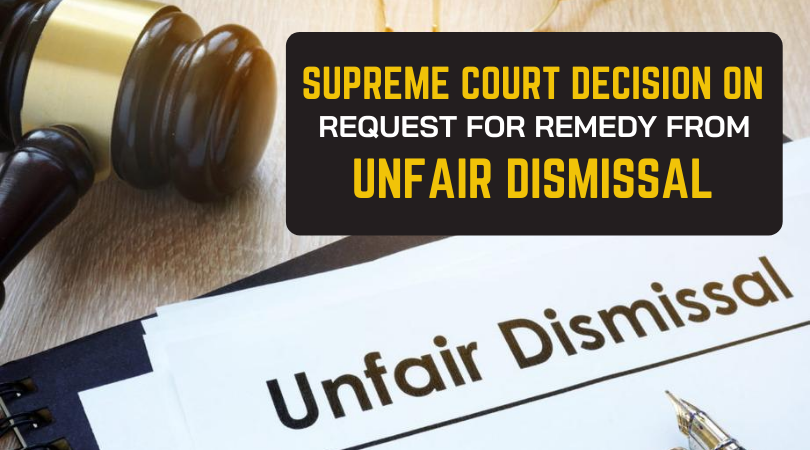Q&A on Shutdown Allowances and Paid Leave Due to COVID-19
March 5, 2020
Getting divorce in Korea (2) – Causes for Judicial Divorce
February 16, 2021Are you considering divorce in Korea? If both you and your spouse are Koreans, you may sue for divorce to a family court in Korea, and Korean law shall govern your divorce case without a doubt. However, if you are not a Korean national, you may be confused on whether it is possible to file a divorce suit to Korean family court. Governing law on your divorce case will be also an issue. To clarify which court shall have international jurisdiction and which law shall be the governing law is the first step to start your divorce proceedings.

Let’s begin with international jurisdiction. The Article 2 of Act on Private International Law (hereinafter referred to as the “Act”) states on international jurisdiction as follows;
Article 2 (International Jurisdiction)
(1) In case a party or a case in dispute is substantively related to the Republic of Korea, a court shall have the international jurisdiction. In this case, the court shall obey reasonable principles, compatible to the ideology of the allocation of international jurisdiction, in judging the existence of the substantive relations.
(2) A court shall judge whether or not it has the international jurisdiction in the light of jurisdictional provisions of domestic laws and shall take a full consideration of the unique nature of international jurisdiction in the light of the purport of the provision of paragraph (1).
According to the Article mentioned above, as for international jurisdiction, the main issue is whether the case or the party is “substantively related to the Republic of Korea”. The Article applied to a divorce case, if you’re not a Korean but your spouse, and you continued your marriage in Korea, a family court in Korea shall have international jurisdiction on your divorce case. However, what about non-Korean couples? If they have married in Korea, a family court in Korea shall have international jurisdiction on their divorce case. Actually, one of my former clients does not have Korean nationalities and neither does her husband. But a family court in Korea had international jurisdiction over her divorce case since their marriage had been continued in Korea.
If you find out that a family court has international jurisdiction to your divorce case, you will have to check what law shall be applied to your case. Even if a family court in Korea has jurisdiction over the case, foreign laws might be the governing law based on the parties’ nationality and their marriage situation. As for divorce, the Article on General Validity of Marriage of the Act shall apply as below;
Article 39 (Divorce)
With respect to divorce, the provision of Article 37 shall apply mutatis mutandis: in case one of both spouses is a national of the Republic of Korea, who has his/her habitual residence in the Republic of Korea, the divorce shall be governed by the law of the Republic of Korea.
Then we need to check out the Article of Marriage stated on the Act as follows;
Article 37 (General Validity of Marriage)
The general validity of marriage shall be governed in order by one of the laws determined in the following subparagraphs:
- The same law of nationality of both spouses;
- The same law of the habitual residence of both spouses;
- The law of the place where is most closely connected with both spouses.
To give you a concrete example, I had to apply a foreign law as both my client and her husband had the same foreign nationalities even though they had continued their marriage in Korea and a family court in Korea had international jurisdiction over her case. Eventually, the judge at a Korean family court granted a divorce in favor of my client based on the foreign law that I applied.
As I explained so far, I’d recommend you to check out the international jurisdiction and governing law through legal consultation with a Korean lawyer before starting with divorce proceedings to save your time and cost if your marriage involves different nationalities.
Related posts
Blog Articles
Contact Information
201, 160, Seochojungang-ro, Seocho-gu, Seoul, Republic of korea.
Phone: +82-2-535-1235
Mobile: 010 5349 1235
Fax: +82-2-536-1236
Email: [email protected]







































![[Supreme Court Decision – Criminal Law] – On Intent of Defamation](https://lawyerhwang.com/wp-content/uploads/2020/03/Supreme-Court-Decision-–-Criminal-Law-–-On-Intent-of-Defamation.png)
![[Supreme Court Decision – Criminal Law] – On Uploading a “Torrent File” of Obscene Videos](https://lawyerhwang.com/wp-content/uploads/2020/03/Supreme-Court-Decision-–-Criminal-Law-On-Uploading-a-“Torrent-File”-of-Obscene-Videos.png)






























